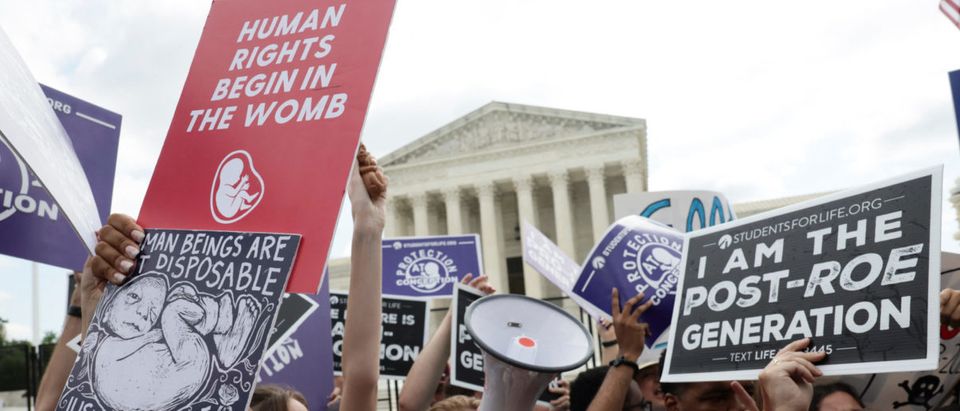Indiana Republican Governor Eric Holcomb signed a bill Friday night banning abortion in the state except in cases involving rape, incest danger to the life of the mother or lethal fetal anomalies.
Indiana is the first state to pass such a bill following the Supreme Court’s decision in Dobbs v. Jackson Women’s Health Center to return the abortion issue back to the states. The Indiana ban will take effect September 15, 2022.
Senate Bill 1 also takes away licenses from abortion clinics in the state. Once the bill takes effect, abortions will only be performed in hospitals or outpatient centers owned by hospitals, Fox reported. The bill also puts strict limits on when abortions may be performed and mandates that abortions performed in cases of rape or incest may only be performed within the first 10 weeks of pregnancy. (RELATED: Abortion Won’t Save Democrats In The Midterms, Despite Their Newfound Hopes)
“Following the overturning of Roe, I stated clearly that I would be willing to support legislation that made progress in protecting life,” Holcomb said in a statement. Holcomb noted that his decision to sign the bill, “followed long days of hearings filled with sobering and personal testimony from citizens and elected representatives on this emotional and complex topic.”
“Ultimately, those voices shaped and informed the final contents of the legislation and its carefully negotiated exceptions to address some of the unthinkable circumstances a woman or unborn child might face.”
So Proud of Indiana for becoming the First State to pass strong Pro-Life legislation since the Supreme Court overturned Roe v. Wade! Thank you @GovHolcomb, Pro-Life Leaders in the IN General Assembly & @irtl for this Victory For Life! Life is Winning!🇺🇸https://t.co/ofKtMg2xwA
— Mike Pence (@Mike_Pence) August 6, 2022
Former Indiana Governor and Vice President Mike Pence praised the passage of the bill on Twitter.
“So Proud of Indiana for becoming the First State to pass strong Pro-Life legislation since the Supreme Court overturned Roe v. Wade,” Pence wrote.
The American Civil Liberties Union’s Indiana chapter attacked the bill on Twitter after the Indiana House of Representatives passed the legislation earlier that day.
“The impact of restricting abortion access will fall hardest on people who already face systemic racism & barriers to health care access,” the group said.












